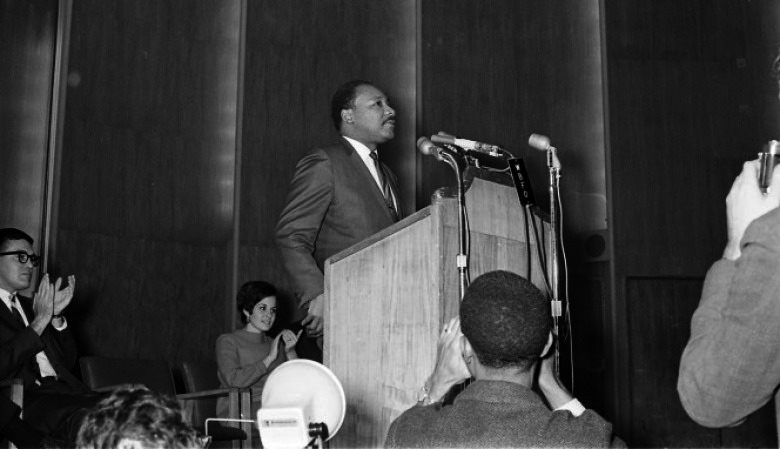It's November 9, 1967. Imagine yourself sitting in Kleinhans Music Hall. Dr. Martin Luther King, Jr. is speaking. In the acoustically perfect hall, you catch every word, every inflection, every emotion of the great civil rights activist and orator.
It is five months before his assassination. His extemporaneous talk is titled "The Future of Integration." More than 2,000 are in attendance, far from a full house. Dr. King speaks not only about integration, but also about the importance of education and voting, about the racial violence ravaging the country, and about his staunch opposition to the Vietnam War.
Fast forward nearly half a century. Buffalo remains a racially divided city. The nation is once again wracked by racial violence. And we still have U.S. troops on the ground abroad. Martin Luther King, Jr's words remain as relevant today as they were nearly half a century ago.
There are enough winter-themed events to fill the entire long weekend: Chillabration at Canalside, Winter Blast at MLK, Jr. Park, Winterfest Tonawanda... But wouldn't revisiting Dr. Martin Luther King, Jr.'s message spoken in Buffalo this event be a great way to honor him this weekend? Listen to the speech online and see photographs and reports on it in the UB Archives.
Or take an hour to learn the history of the Jim Crow Law and Civil Rights in the Crescent City with Dr. LaKisha Michelle Simmons at 3:00pm at the Buffalo History Museum on Sunday, January 17 at the Martin Luther King, Jr. Celebraton.
On MLK Day (Monday January 18), the Grant Street Neighborhood Center will commemorate Martin Luther King, Jr. Day from 3:30-6:00pm with videos, live music, and food. Meet guest speakers who actually marched with the late human rights leader and activist.
It took nearly 20 years of intensive lobbying by Coretta Scott King - with some help from Stevie Wonder - before the first Martin Luther King, Jr. Day was finally celebrated on January 20, 1986. Eight years later, President Clinton expanded the mission of the holiday as a day of community service, interracial cooperation and youth anti-violence initiatives. In 1999, the Senate passed a law requiring federal institutions to fly the flag on the third Monday of January. Today, Martin Luther King, Jr. Day is celebrated not only in the U.S. but in 100 nations worldwide.
And that's why we have a long weekend in January.
Honor Dr. King on Monday, even if it's just by imagining what might be different were he still alive today, how he might be leading the charge to defeat the racism, poverty and ignorance that continue to plague our city and our nation.
It's up to us now.

